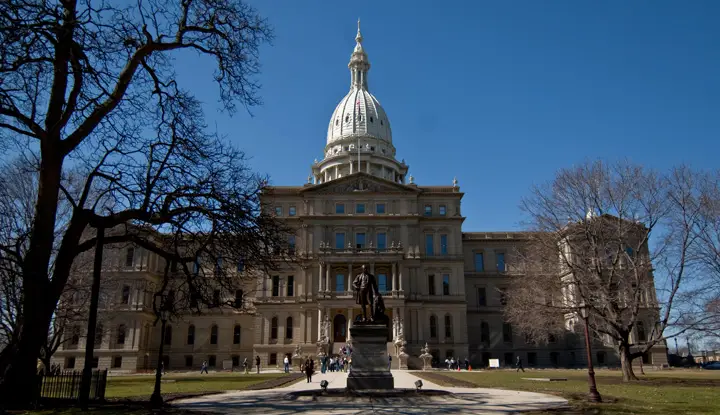Two U.S. Senators are pushing for reforms that would ensure more protections for Olympic and amateur athletes in the country.
Senators Jerry Moran (R-Kan.) and Richard Blumenthal (D-Conn.), who investigated coaches and powerful individuals within the Olympic movement for 18 months, found athletes vulnerable to sexual abuse due to lack of oversight, independence, and transparency.
Both senators investigated Larry Nassar, a former Olympic gymnastics team doctor who was accused of sexually abusing more than 300 athletes over two decades.
The U.S. Olympic and Paralympic Committee (USOPC) and USA Gymnast knowingly concealed abuse by Nassar, which lead to abuse of dozens of additional amateur athletes between summer of 2015 to September 2016, according to the report.
“USOC, despite having been directly informed by NGBs of the threat of sexual misconduct in elite sports, failed to address the risk until 2010, and then failed to take effective action for many years, permitting NGBs to continue adhering to inadequate and harmful policies and practices,” the report states.
The report also found Michigan State University and the FBI failed in their job to protect the athletes. In 2017, Nassar was sentenced to 40-175 years in prison. MSU paid $500 million to settle the lawsuit with 332 victims of sexual abuse. Out of the $500 million, the university paid $425 million to the Qualified Survivor Fund and set aside the remaining $75 million in a litigation fund.
On Tuesday, both senators introduced Empowering Olympic and Amateur Athletes Act of 2019 to empower and protect Olympic and amateur athletes through a reform which includes promoting a favorable culture for athletes and ensuring greater transparency and accountability.
The U.S. Center for SafeSport, which is responsible for investigating allegations of sexual abuse against athletes and coaches would be made independent from National Governing Bodies (NGBs) and U.S. Olympic and Paralympic Committee.
“We have been incredibly moved by the courage of the survivors of abuse who have shared their stories with us and the world,” both the senators said in a joint statement.
“We draw motivation from their unwavering commitment to work with us to prevent the abuse of any young athlete in the future and we thank them for putting their trust in us. We will get this bill across the finish line – for them, and for all future athletes, so that they may be able to participate in the sport they love without fear of abuse.”
The bill would increase athlete representation on governing boards, committees and panels within NGBs, USOC and ensure protection from retaliation to individuals who report emotional, physical, or sexual abuse of an athlete.
The Congress will have more oversight over the USOC with powers to dissolve the Board of the U.S. Olympic Committee and decertify NGBs.
“This bill sends a message from Congress to our athletes: We care about you. You have a voice. Speak up and you will be believed,” said 2000 Olympic Bronze Medalist Jamie Dantzscher.
“It also sends a message to the leadership of the US Olympic Committee and the national governing bodies: Put the health and safety of athletes above money and medals or you will be held accountable.”
Michigan State University Sued for “Flawed” Sexual Abuse Investigation



